For many years, buying property in Portugal was one of the most popular ways to obtain Portuguese Citizenship. This route was especially attractive under the Golden Visa program, which allowed non-EU investors to gain Portugal residency through real estate purchases.
Applicants could purchase property worth €500,000 or more, or invest in a rehabilitation project with a minimum of €350,000. By maintaining their investment, they become eligible to apply for Portuguese citizenship after five years. This made Portugal a top destination for property investors looking for European residency.
This guide explains your current options for Portugal residency and how to reach Portuguese Citizenship through legal, updated paths. We’ll also look at how buying property still plays an important role in your long-term plans, even if it’s no longer a direct route to the Golden Visa.
What Changed in Portugal’s Golden Visa?
In 2023, major changes have been made to the Golden Visa rules. The government decided to remove real estate as an eligible investment type. This change came in response to concerns about rising property prices and limited housing availability for local residents. Now, applicants must use other approved methods to qualify for residency and citizenship.
Even though property no longer qualifies for the Golden Visa, owning real estate in Portugal still has many benefits. It can support other visa applications, like the D7 Visa, which requires proof of stable income and accommodation. Property ownership also shows a strong connection to the country, which is useful when applying for Portuguese Citizenship.
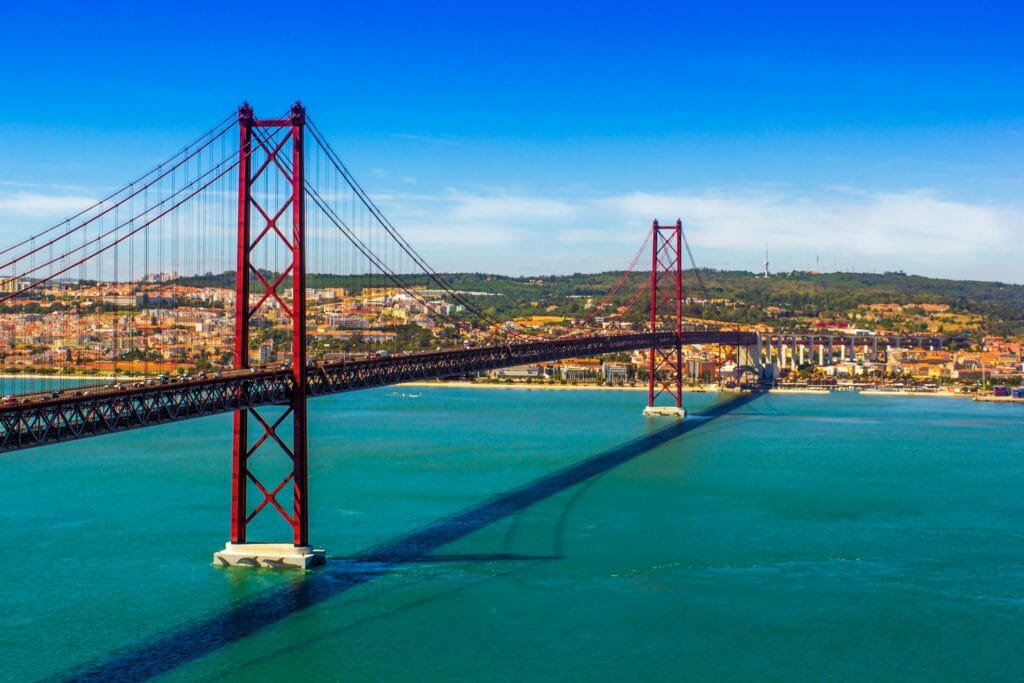
What Can You Do Instead of Buying Property?
Although buying property no longer qualifies for the Golden Visa, there are still legal and effective investment routes that can help you obtain Portugal residency and eventually Portuguese Citizenship.
The government has provided several alternate options that support economic growth, science, culture, and job creation in the country. These pathways are ideal for individuals who wish to make a long-term commitment to Portugal without relying on real estate.
1. Investment in Portuguese Funds
You can invest at least €500,000 in a qualifying Portuguese investment fund. These funds are registered with the Portuguese Securities Market Commission (CMVM) and focus on supporting local businesses, infrastructure, or innovation. It’s a hands-off approach where your money is professionally managed, and you don’t need to be actively involved in daily operations.
2. Support for Cultural Heritage
A donation of €250,000 to projects that protect and maintain Portugal’s cultural heritage can also qualify you for residency. This could include funding the restoration of historic buildings, museums, or art institutions. It’s a meaningful way to contribute to the country’s identity and receive residency rights in return.
3. Contribution to Science and Research
Portugal encourages advancements in health, technology, and environmental research. Donating €500,000 to public or private research institutions is another recognized way to gain residency. Universities and science labs actively seek this type of funding, and your support helps promote innovation.
4. Business Investment and Job Creation
If you’re entrepreneurial, starting a business with a minimum investment of €500,000 is another route. The business must create or maintain at least 10 jobs for Portuguese residents. This option is best for individuals who want to live in Portugal and play an active role in the economy.
These paths can lead to the same outcome. After five years, you may still get Portuguese Citizenship.

Buying Property in Portugal is Still a Smart Idea
Even though property no longer qualifies for the Golden Visa, buying real estate in Portugal remains a smart financial and personal decision. It offers long-term value, steady income potential, and a chance to enjoy life in one of Europe’s most welcoming countries. For many people, purchasing property is still an important step in building a future in Portugal.
Portugal’s housing market continues to show strong demand, especially in cities like Lisbon, Porto, Faro, Madeira, and tourist-friendly regions such as the Algarve.
Porto is now preparing to host the Michelin Guide Gala in 2025, highlighting its growing international reputation for food and culture. With more commercial properties converting to homes and high global demand, it’s also a top-ranked luxury real estate market.
Madeira adds a touch of exclusivity and natural beauty. Ranked the third most exclusive destination in Europe, it has hosted the 2024 World Golf Awards.
These areas offer not only beautiful surroundings but also stable or growing property values. Buying in the right location can result in steady rental income. You can earn from short-term holiday lets or long-term tenants, depending on your plans.
Owning a home also helps with visa applications like the D7, which requires proof of accommodation. Whether you use the property as your primary residence, a seasonal home, or a rental, it strengthens your connection to the country. This connection can support your case when applying for Portuguese Citizenship later.
Real estate can also be a safety net. If visa rules change, you still own a physical asset in Portugal. The property may also be passed on to family or sold later for a profit. In short, while it may not guarantee citizenship on its own, property ownership remains a wise part of a broader plan for those seeking Portugal residency and long-term settlement.
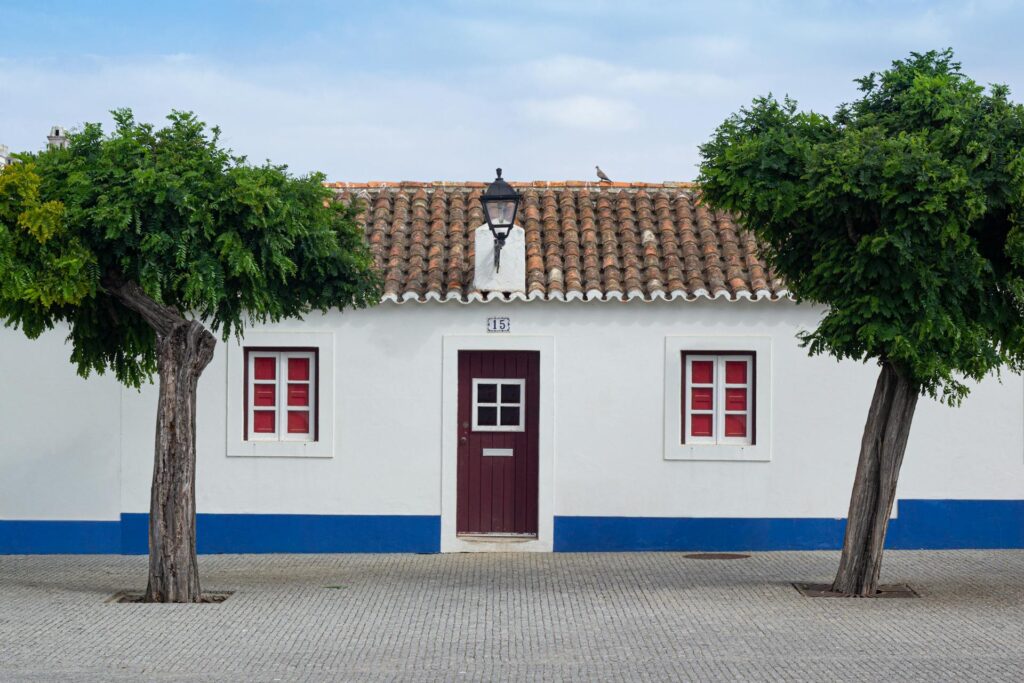
How to Get Portuguese Citizenship After Residency
Gaining Portuguese Citizenship is the final goal for many people who move to Portugal. It opens the door to living, working, and traveling freely throughout the European Union. While the path may take several years, the process is simple and well-structured.
The basic rule is that you must hold legal Portugal residency for at least five years. This applies to people on visas like the Golden Visa, D7, or D2. However, you don’t need to live in Portugal full-time to qualify. For example, the Golden Visa only requires you to stay in Portugal for about seven days each year. On the other hand, D7 and D2 visa holders must spend more time in the country.
Requirements for Applying for Portuguese Citizenship
During your five-year residency, there are a few important conditions to meet if you plan to apply for Portuguese citizenship:
- Learn Basic Portuguese – You’ll need to pass the A2 language test, which covers reading, writing, speaking, and listening at a beginner level. This helps show your integration into Portuguese society and can be prepared for through classes or self-study.
- Keep a Clean Criminal Record – Both your Portuguese and international criminal records must be clear. Even minor legal issues can delay or block your citizenship application.
- Stay on Top of Renewals – Each visa type has its own renewal schedule. It’s important to renew your residency on time to maintain an uninterrupted five-year residency.
- Build Ties with the Community – Showing a genuine connection to Portugal strengthens your application. This can include participating in local activities, joining community groups, or even small things like having a Portuguese bank account, utility bills, or involvement in local life.
After meeting all these conditions, you can apply for Portuguese Citizenship. The process includes submitting documents, passing the language test, and showing proof of your legal stay. Once approved, you gain full citizenship rights. You receive a Portuguese passport, which allows you to live and work anywhere in the EU. It also gives your family members the chance to apply for citizenship or residency.
Citizenship is not automatic, and may take 24 to 29 months, but with careful planning and steady progress, it is well within reach.
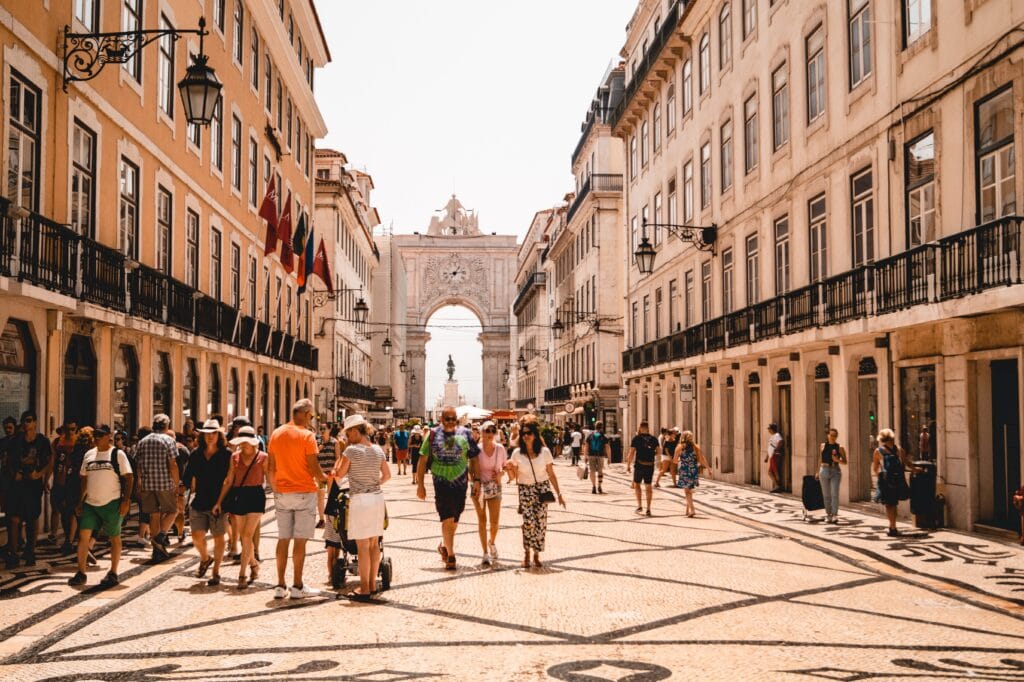
How the Portugal Residency Path Works
To begin your journey toward Portuguese Citizenship, the first step is getting a legal residency permit. This document allows you to stay in Portugal for an extended period and enjoy rights like healthcare, education, and banking access. There are different visa types, each designed for specific situations. You must choose the one that fits your background and goals.
One popular route is the Golden Visa, which now requires investment in approved funds, scientific research, or cultural donations. Another common option is the D7 Visa, designed for people who earn a stable income through pensions, remote work, or property rentals. There’s also the D2 Visa, ideal for entrepreneurs planning to open or run a business in Portugal.
No matter which visa you apply for, the overall process remains similar. You will need to maintain legal residency for five years before applying for citizenship. During this time, you must renew your permit according to the schedule set for your visa type.
You should also take time to learn Portuguese. Even though the A2 level is basic, it’s required for citizenship. Knowing the language also helps you adjust to life in Portugal and connect with local communities, making your stay smoother and more enjoyable.
Types of Visas for Portugal Residency
When planning to move to Portugal, understanding visa options is important. Each visa has different rules and suits different people. Below are the main visa types that can help you gain Portugal residency and later apply for Portuguese Citizenship.
Golden Visa
The Golden Visa is for those who want to invest in Portugal. While property investment no longer qualifies, you can still apply through other routes. These include investing €500,000 in a Portuguese investment fund, supporting science or research, or donating to cultural projects.
This visa is flexible. You only need to stay in Portugal for seven days per year. It is ideal for those who don’t want to live in Portugal full-time right away. After five years of keeping the investment and renewing the visa, you can apply for Portuguese Citizenship. This visa is best for high-net-worth individuals who want a passive way to gain residency and eventual citizenship.
D7 Visa
The D7 Visa is for people who have stable passive income. This includes pensioners, remote workers, or anyone earning from rental income or investments. You must show that you can support yourself while living in Portugal.
To qualify, you need proof of income and a place to live. Many D7 applicants choose to buy property to meet this housing requirement. This visa requires you to stay in Portugal most of the year. After five years, you can apply for Portuguese Citizenship.
This visa is best for people who want to live in Portugal full-time and enjoy a slower pace of life with Portugal Residency. It’s also more affordable than the Golden Visa.
D2 Visa
The D2 Visa is for entrepreneurs or freelancers. If you want to start a business in Portugal, this is the best option. You need to show a solid business plan and explain how your work will help the local economy.
This visa suits business owners, service providers, and startup founders. It is also useful for digital nomads who want to base themselves in Portugal. You must stay in the country for most of the year and report your income and taxes locally.
If your business grows and stays active, you can renew your visa easily. After five years of residency, you may apply for Portuguese Citizenship. This visa works well for people who want to be active in the Portuguese economy.
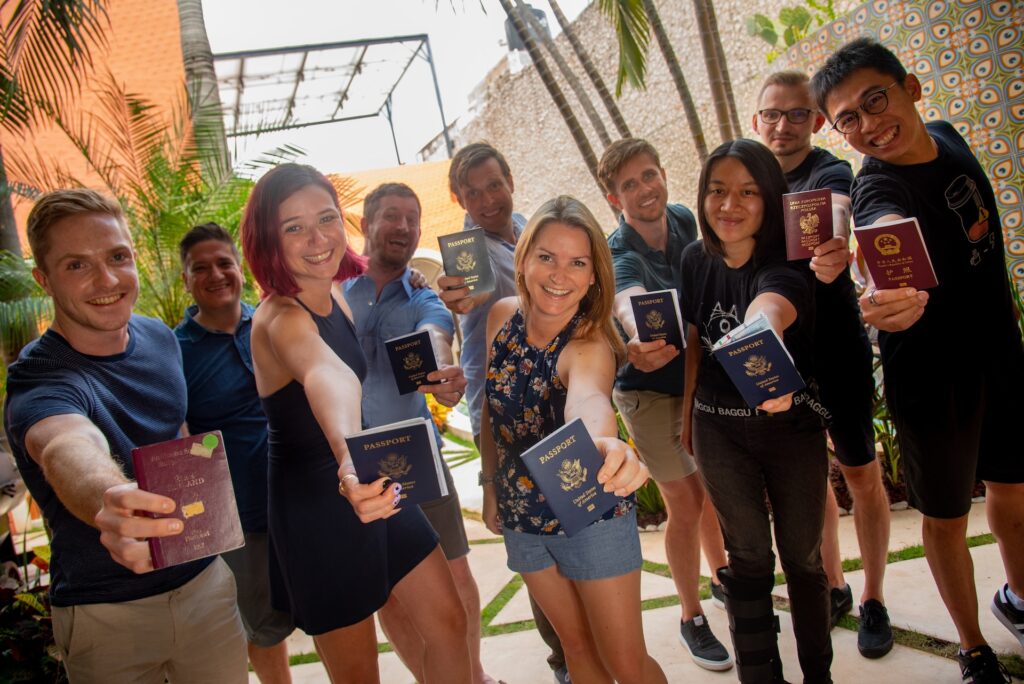
Why Portugal Is One of the Best Places to Live in Europe
Portugal has quickly become one of the most desirable countries to live in Europe. It offers a unique mix of modern living, rich culture, safety, and affordability. Whether you’re moving for work, retirement, or lifestyle, Portugal Residency checks all the boxes for a peaceful and fulfilling life.
Lisbon
Lisbon, the country’s capital, continues to earn international praise. It was named the best European capital to visit in 2024 by VisaGuide.World, based on quality of life, transport, weather, and affordability.
According to The Guardian, it’s also the best-value city break in Europe. This makes it attractive not just to tourists but long-term residents as well.
Porto
Porto, which is Portugal’s second-largest city is another star. It ranked 10th on Time Out’s Best Cities in the World and was also honored in Condé Nast Traveler’s 2024 Readers’ Choice Awards.
Algarve
For nature and leisure lovers, the Algarve region is unmatched. Its Vilamoura Marina has been voted the best international marina seven times, and Falésia Beach was just crowned the best in the world by TripAdvisor. Golf enthusiasts can enjoy award-winning courses like Quinta do Lago’s South Course, while direct flights from New York to Faro make it easy for U.S. expats.
Azores
Finally, the Azores attract adventure seekers and remote workers. Named Europe’s Best Adventure Destination for 2024, they’re home to diverse expats from over 10 countries, and natural wonders like the Capelinhos Volcano.
From cities to islands, Portugal Residency offers unmatched lifestyle benefits for anyone looking to relocate.
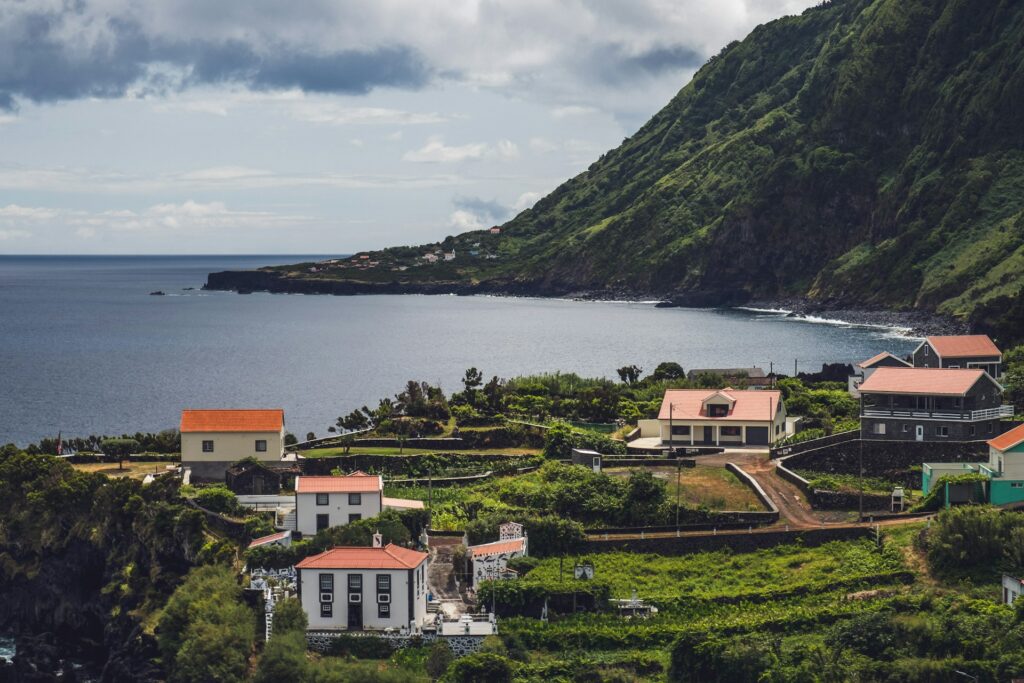
How to Find Good Property in Portugal
Finding the right property in Portugal takes research and planning. Prices vary depending on location. Some areas are more expensive but offer better returns. Others are cheaper but may grow in value later.
In the Lisbon City Center, prices are the highest for Portugal Residency. The average price is €5,674 per square meter. Rent prices reach €22.10 per square meter, giving a 4.7% rental yield. The Lisbon Metropolitan Area has lower prices at €4,174 per square meter, but rental yields improve to 5.7%.
Porto offers better value for money. In the Porto City Center, prices are about €3,667 per square meter. Rental income is around €17.40 per square meter with a 5.7% yield. The Porto Metropolitan Area offers similar prices with slightly lower rents but a 6.7% yield.
The Algarve Region is popular for its lifestyle for those who want Portugal Residency. The average property price is €3,513 per square meter. Rents are around €14.60, with a 5.0% rental yield.
If you’re looking for low-cost areas, try Coimbra, Braga, or the Azores. Coimbra has one of the highest rental yields at 8.8%, with prices at only €1,461 per square meter. Braga and Leiria also have good yields above 6.5% with low property prices.
The Azores is the most affordable at €1,598 per square meter, with a yield of 7.6%. Madeira Island is slightly higher at €3,161 but has a steady 5.2% return.
Choose your Portugal Residency based on your goals. Buy in high-demand cities if you want long-term value. Pick smaller cities for better rental income and lower costs.

How Can We Help
Portugal Residency Advisors®, our main immigration and relocation partner, makes your journey to residency smooth and stress-free. Whether you’re applying for a visa or investing in property, their expert team guides you every step of the way.
They help you choose the right location, connect you with trusted local agents, and ensure you find verified properties that fit your needs. Their legal partners assist with Golden Visa, D7, and document prep, while also helping with bank accounts, tax numbers, and rentals if needed.
With Portugal Residency Advisors, you’re not just moving—you’re building your future in Portugal, confidently and efficiently. Contact Here.
Looking to Invest in Portugal?
Explore our newest listings below!
Frequently Asked Questions About can you still buy property in portugal and get citizenship?
Can I still get Portuguese Citizenship by buying a house in Portugal?
No, buying property no longer qualifies you for the Golden Visa. However, owning a home can support other visa applications like the D7 and still plays an important role in long-term residency and citizenship planning.
Why did Portugal remove property from the Golden Visa program?
The government ended property-based Golden Visas to control rising housing prices and improve access for local residents. The focus has shifted to other investment options, like funds, cultural donations, and scientific research.
Is buying property still helpful for my Portugal residency plan?
Yes, even if it doesn’t lead directly to citizenship, owning a property helps prove ties to Portugal. It strengthens visa applications and shows commitment when applying for Portuguese Citizenship after five years of legal residency.
What are the current investment options for the Golden Visa?
You can invest €500,000 in Portuguese funds, donate €250,000 to cultural heritage, €500,000 to scientific research, or create jobs by starting a business. These routes still qualify you for Portugal residency and future citizenship.
Does owning a property help with the D7 Visa?
Yes, owning a property can help fulfill the D7 Visa’s housing requirement. It demonstrates that you have stable accommodation, which is one of the key conditions when applying for Portugal residency through this visa type.
Can I rent out my property while living abroad?
Yes, Portugal allows property owners to rent their homes short-term or long-term. This is a popular way to generate income while meeting the minimum financial requirements for visas like the D7.
How long must I hold legal residency before applying for citizenship?
You need to maintain legal Portugal residency for at least five years. After this period, you may apply for Portuguese Citizenship, provided you meet other requirements like the A2 Portuguese language test.
Is the Portuguese language test difficult to pass?
The A2 level is considered basic. It covers simple conversation, reading, and writing. Many applicants pass with practice or short courses, and it’s required for those applying for Portuguese Citizenship after residency.
Will Portugal change the rules again for property investors?
There’s no official plan to reinstate property as a Golden Visa route. However, owning property is still considered a good financial and lifestyle choice and may support your citizenship case in indirect ways.
Can I apply for citizenship without using a visa consultant?
Yes, you can apply independently, but many people choose consultants to avoid delays or mistakes. Professionals help with documentation, translations, legal steps, and choosing the right visa route to reach Portuguese Citizenship efficiently.
